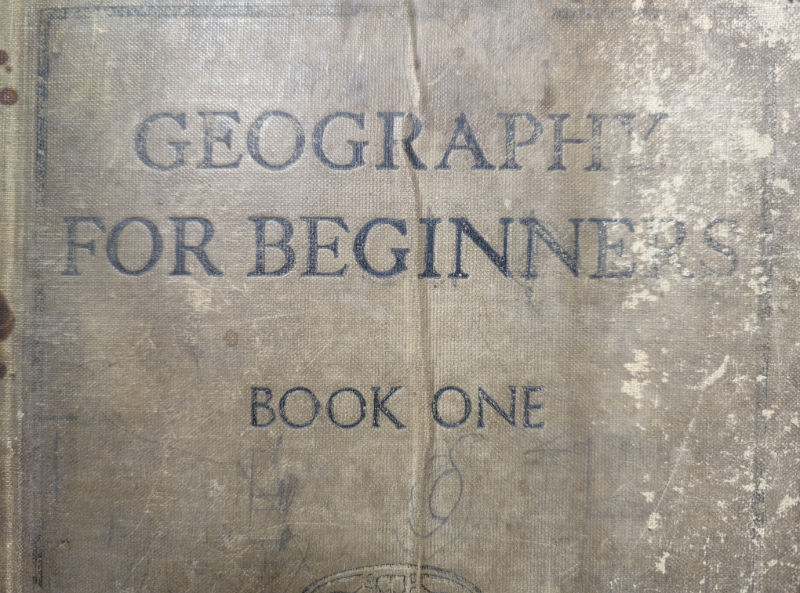Library Adventures: January 17, 2024
The Friends of the Library has possibly been the most enjoyable reason to get out of the house, because my day job certainly hasn’t claimed that honor. Rather than simply show up for deeply discounted and free books from the monthly sales, I decided to put some more effort into this volunteer work and do some heavy lifting. That way, I could get all the free books I wanted.
It’s pathetic, but how else could I get my printed word fix? Don’t get me wrong, I’m the proud owner of a brand new Kindle Paperwhite device, but there’s something absolutely wholesome about holding physical books in my hands.
There’s something equally satisfying about finding stories behind donated books, or least making up those stories myself. Some days, the loading dock by the workroom is stacked with neatly categorized boxes. Like that one time we got several boxes filled with nothing but bestselling novels translated into German, or that collection composed of 90s Wall Street investment business books.
Each batch has a history, once held dear by faceless strangers, now pieced together from scant details to form a narrative that may not even be true.
Every now and then, I get a story that I write from articles left inside the book.
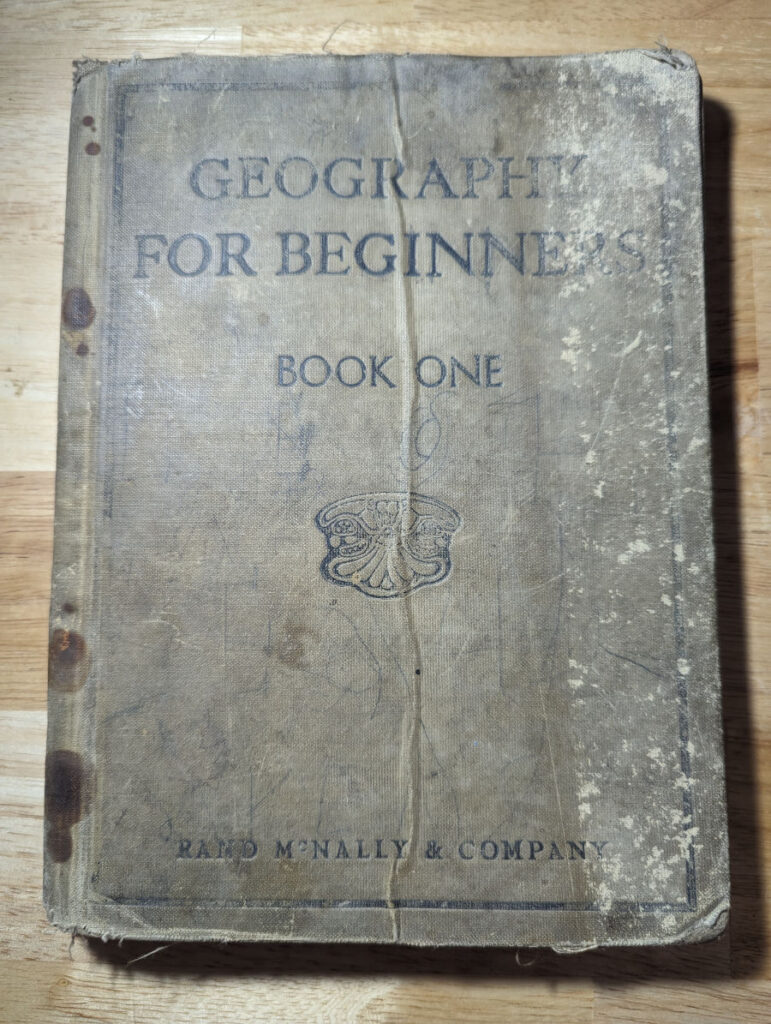
What I found in this box of donations was a miniature scholastic drama starring one young Ralph Hedges in the state of West Virginia. His school term lasted from September 2, 1935 to May 26, 1936. The stage for his story is a modest, now hopelessly time-worn textbook titled Geography for Beginners: Book One. I found it interesting that this edition was published in 1923 by Rand McNally, once heavyweight publisher of roadmaps, who have managed to survive this app era by creating navigation software for trucking fleets. Talk about skill upgrading.
An aside: Back when I was a kid in the 80s and 90s, you couldn’t go to any store without seeing a spinning rack of Rand McNally maps. Every family car had a giant foldout map of the local area. For those ambitious, long trips, you have entire books of state maps. As kids, we’d pore over those halftone images and use the grid to find cities we’d visited or lived in, or plan imaginary trips. Back in those pre-internet days, you used your imagination; you didn’t cobble it together from social media and pop culture as so many young people are doing nowadays.
Back to the book. This was so similar to some of the textbooks I’d had when I was in grade school. For something from the 1920s and aimed at young children, it looks fairly interesting.
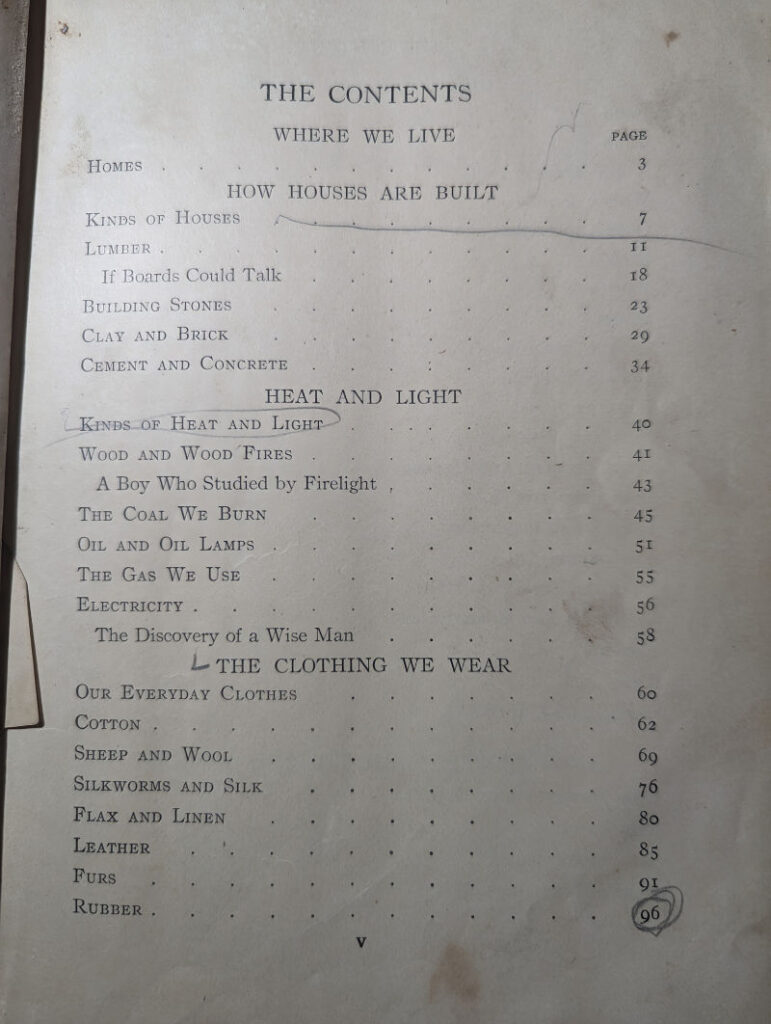
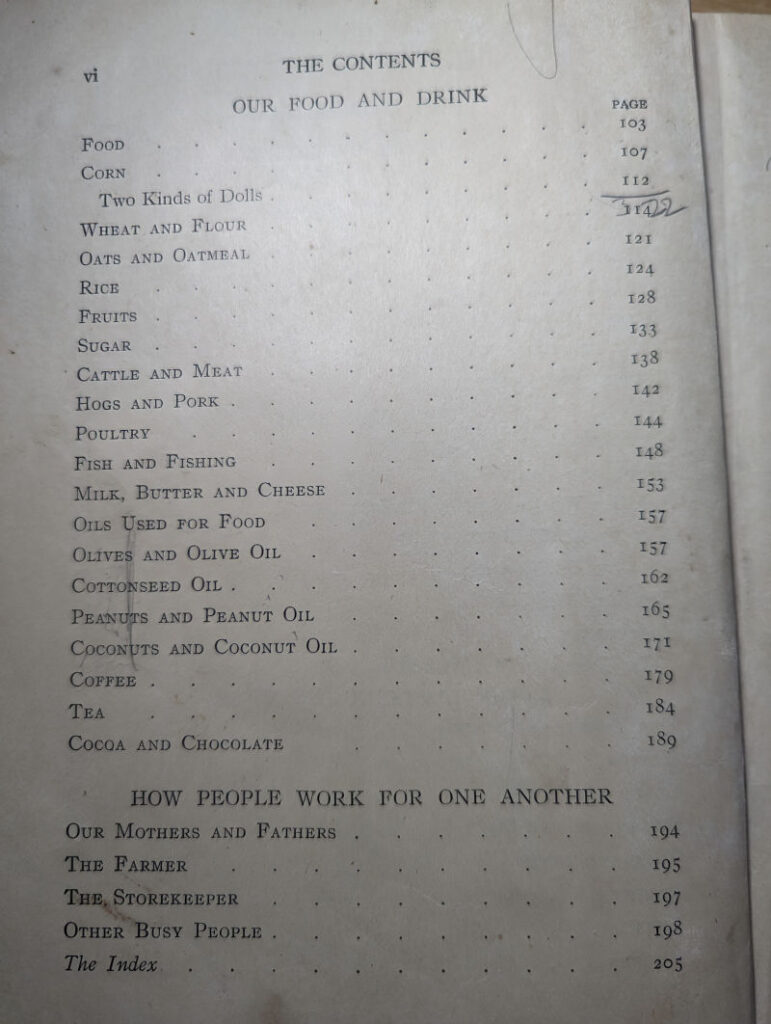
I wouldn’t mind seeing how 1920s-30s children learned about geography, so I think I’ll hold on to this book. I do know, however, that if I return it to the FOL workroom, it’s going into the trash. Time-eaten books like this don’t stand a chance in a book sale, not even as a freebie. Perhaps I’ll keep it, if for no other reason than I feel some sympathy for young Ralph.
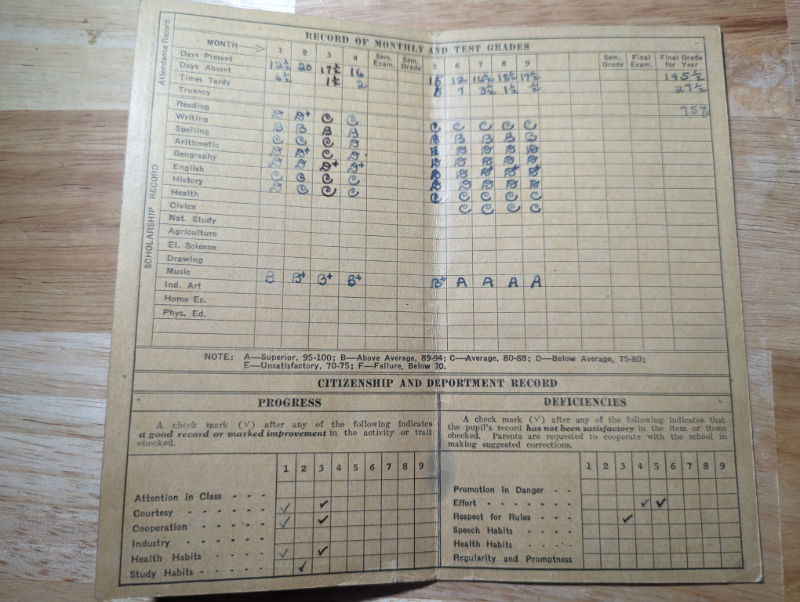
Because from the looks of it, he didn’t enjoy the subject of Geography all that much. Nor Arithmetic. He did okay in History, Reading, and Health; fairly well in Writing; and nailed Music. Out of all the subjects he studied, that was the one where he excelled probably because he felt the most alive.
But doing well in just one subject doesn’t usually bode well for students…
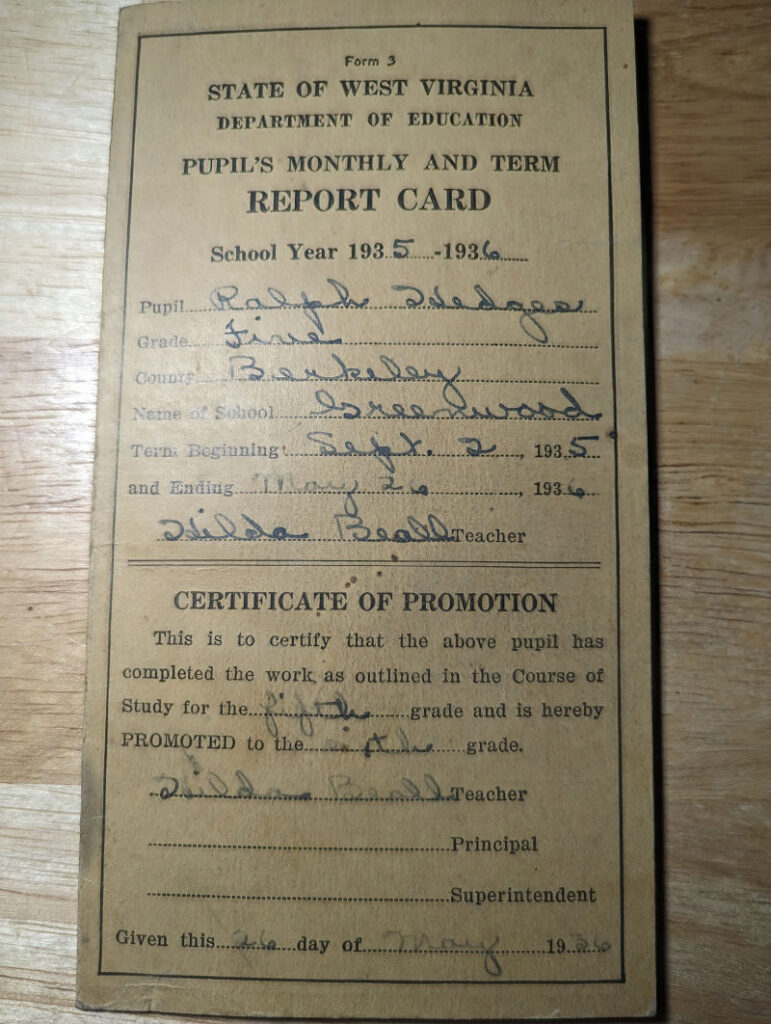
But fear not, because despite his miserable stints, Ralph managed to make it to another grade. Somewhere during his life, he also managed to make it from Berkeley County, West Virginia down to Chesapeake, Virginia, where this scrap of his life made it into our hands nearly 88 years later. What he did in between those years, I will probably never know, but I like to imagine it had something to do with music, and perhaps he did get better at geography, albeit through his own means and not through the school system. Maybe as a traveling musician? I can imagine.
Gosh, now I wonder what he did in that class. Did he play trombone? Was he a guitarist? Did he take to music theory like he knew the language in his heart? Had he aspired to become a teacher or a professional musician? What were his musical tastes—classical or rock? Did he become a hippie in the 1960s and play folk music at concerts?
While the FOL may deem this book worthless, I see it as a peculiar little treasure full of possible stories from someone I’ll never know.
